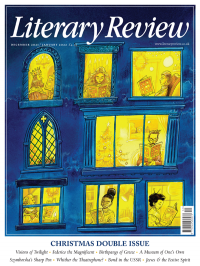Sarah Dunant
Scholar in Arms
The Light of Italy: The Life and Times of Federico da Montefeltro, Duke of Urbino
By Jane Stevenson
Apollo 434pp £30
There is a chamber in the ducal palace of Urbino in central Italy with a most impressive ceiling: the insignia of a black eagle sits in the middle of a sun, with painted flames and cherubs’ heads dancing all around. The rest of the chamber is now so painfully bare that it takes a considerable leap of imagination to go back in time to the 1460s and 1470s, when it housed one of the newest and most valuable humanist libraries of the time.
Indeed, the whole ducal palace – then a recently built confection of Venetian Gothic soaring out of the rock face – was stuffed with all manner of treasures. But history is a careless mistress when patronage becomes uncoupled from power, and over the following centuries Urbino, once a Renaissance gem of a city, crumbled gently into neglect and decay. Elements of its former beauty have been recovered now, but in order to appreciate its full glory, we have to resort to the words of historians. In the case of Jane Stevenson’s biography of Federico da Montefeltro, the man largely responsible for creating these wonders, we are also much aided by a host of sumptuous full-page and double-page illustrations.
Federico is a figure well worthy of attention. Born on the wrongish side of the blanket in 1420s (it was a crowded part of the bed at that time in Italy), he became ruler of Urbino in his early twenties after the assassination of his unpopular half-brother. While there


Sign Up to our newsletter
Receive free articles, highlights from the archive, news, details of prizes, and much more.@Lit_Review
Follow Literary Review on Twitter
Twitter Feed
In 1524, hundreds of thousands of peasants across Germany took up arms against their social superiors.
Peter Marshall investigates the causes and consequences of the German Peasants’ War, the largest uprising in Europe before the French Revolution.
Peter Marshall - Down with the Ox Tax!
Peter Marshall: Down with the Ox Tax! - Summer of Fire and Blood: The German Peasants’ War by Lyndal Roper
literaryreview.co.uk
The Soviet double agent Oleg Gordievsky, who died yesterday, reviewed many books on Russia & spying for our pages. As he lived under threat of assassination, books had to be sent to him under ever-changing pseudonyms. Here are a selection of his pieces:
Literary Review - For People Who Devour Books
Book reviews by Oleg Gordievsky
literaryreview.co.uk
The Soviet Union might seem the last place that the art duo Gilbert & George would achieve success. Yet as the communist regime collapsed, that’s precisely what happened.
@StephenSmithWDS wonders how two East End gadflies infiltrated the Eastern Bloc.
Stephen Smith - From Russia with Lucre
Stephen Smith: From Russia with Lucre - Gilbert & George and the Communists by James Birch
literaryreview.co.uk